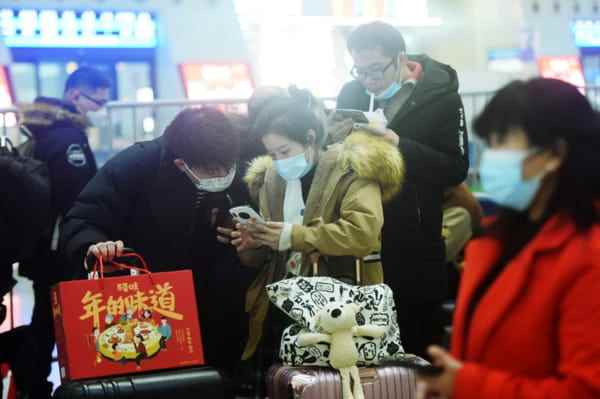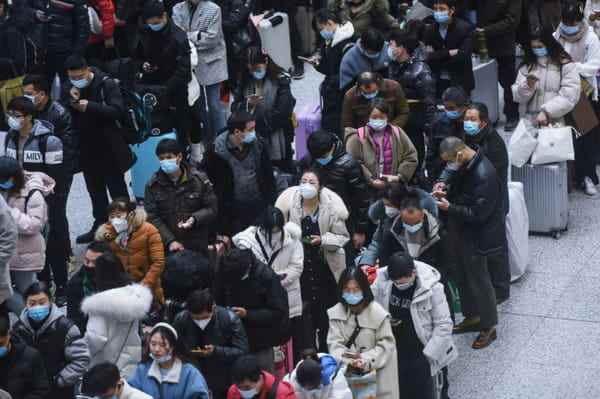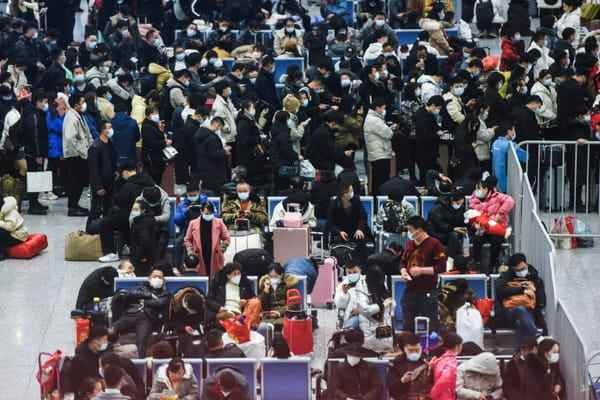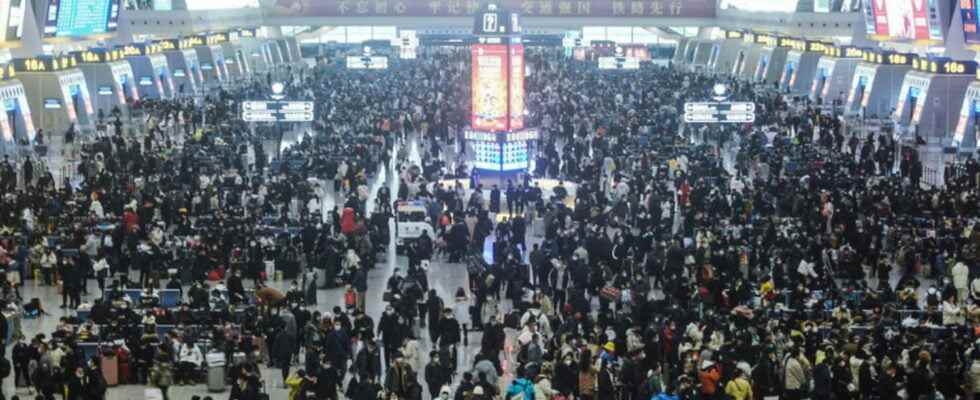A teacher in Shanghai, Chen Hainan, 30, has been spending the Lunar New Year since 2020 away from her family because of Covid-19. But like millions of other Chinese, she braves inconveniences and restrictions this year.
The Year of the Tiger will be celebrated on January 31. It will kick off the “Spring Festival”, the most important family gathering of the year in China, the equivalent of Christmas in the Christian world.
China has largely brought Covid under control since the spring of 2020. Only two deaths have been recorded in more than a year and a half. And life has resumed its almost normal course for the majority of Chinese.
But the occurrence in recent months of small epidemic outbreaks all over the country has led to localized confinements and above all a recommendation from the authorities: limit travel to what is strictly necessary.
Going to another part of the country is the risk of finding yourself stuck there if the authorities suddenly decide on confinement. A concern shared by many Chinese.
But after being deprived for two years, Chen Hainan intends to return to her parents in the coastal province of Zhejiang (east). Even if for that she must carry out, she says, five PCR tests between the outward and return journeys.
“Basically, I didn’t think I was going back this year either,” she said just before boarding her train at Shanghai Central Station, crowded with travelers returning to their families.
“But afterwards, I thought about it. It’s already been two years, so I decided to face all the inconveniences”.
– Bonuses –
The Chinese have since 2020 found shops, restaurants, bars and even transport. But the New Year’s return trip has been one of their main headaches for the past two years.

Travelers return home to spend the Lunar New Year with their families and celebrate the Year of the Tiger, on January 29, 2022 at the railway station in Hangzhou, China
© AFP-STR
In normal times, hundreds of millions of people (workers, students, employees) storm buses, trains and planes in what constitutes the largest annual human migration in the world.
The beginnings of the epidemic in the Chinese city of Wuhan (central) had spoiled the New Year 2020. Last year, the number of travelers was still below half its usual level, due to persistent concerns over the screw the Covid.
This year, it is the approach of the Winter Olympics in Beijing (February 4-20) which puts the health authorities on alert in the face of potential outbreaks which would complicate the smooth running of the event.
Provinces ask their inhabitants to stay put during the holidays and manufacturing areas even offer bonuses to workers to encourage them not to travel.

Travelers return home to spend the Lunar New Year with their families and celebrate the Year of the Tiger, on January 29, 2022 at the railway station in Hangzhou, China
© AFP-STR
PCR tests on departure and arrival have become almost compulsory for travel.
And some cities, against the advice of the government, even impose quarantines on the arrival of travelers. What, however, deter potential candidates …
But many are not discouraged.
– “Fear” –
According to the press, the number of trips is much higher this year than in 2021. And the Shanghai station was traveled all week by an almost uninterrupted flow of travelers.
In Beijing, however, the dilemma is more difficult.
Due to the Olympics, the authorities strongly encourage people to spend the holidays there. To those who leave all the same, they assure however that a return is possible with a PCR test.
“We still stay in Beijing during the holidays because we are afraid of not being able to return if cases are detected in our city or elsewhere,” Joanna Feng, an architect from Wuhan, told AFP.
“Obviously, the grandparents would like to see their grandchildren for the New Year. But we will go after the holidays”.
According to Ctrip, China’s leading online train, plane and hotel reservation, short breaks and vacations close to home are popular this year.

Travelers return home to spend the Lunar New Year with their families and celebrate the Year of the Tiger, on January 29, 2022 at the railway station in Hangzhou, China
© AFP-STR
For Huang Jinnan, an 18-year-old factory worker in Shanghai, however, there is no question of staying in the economic metropolis after having already missed family celebrations last year.
“I’m going to see my grandmother” in Henan province (center), he explains.
“I’m going home (because) I have nowhere else to go”.
burs-dma/ehl/dth
All rights of reproduction and representation reserved. © (2022) Agence France-Presse

